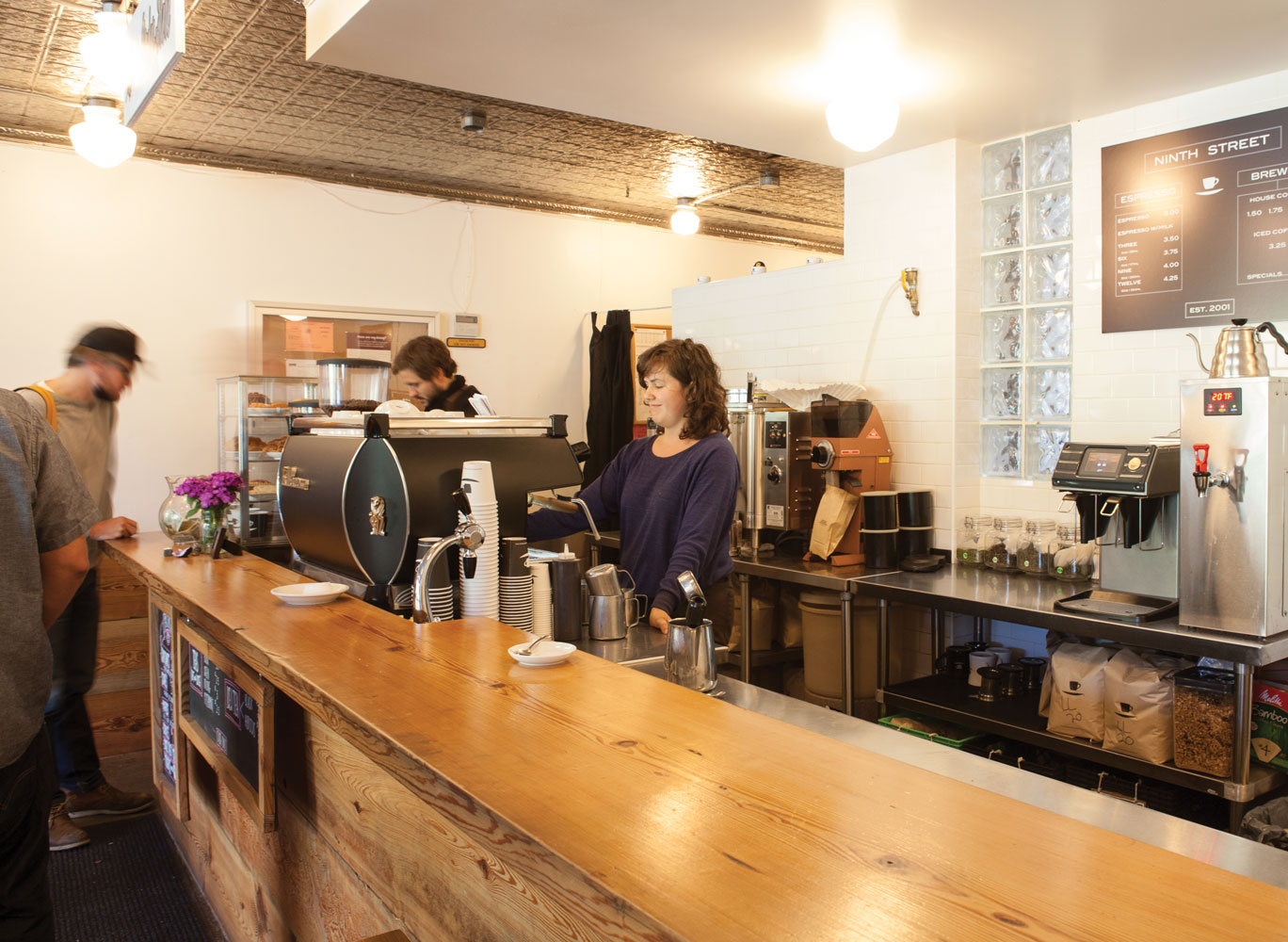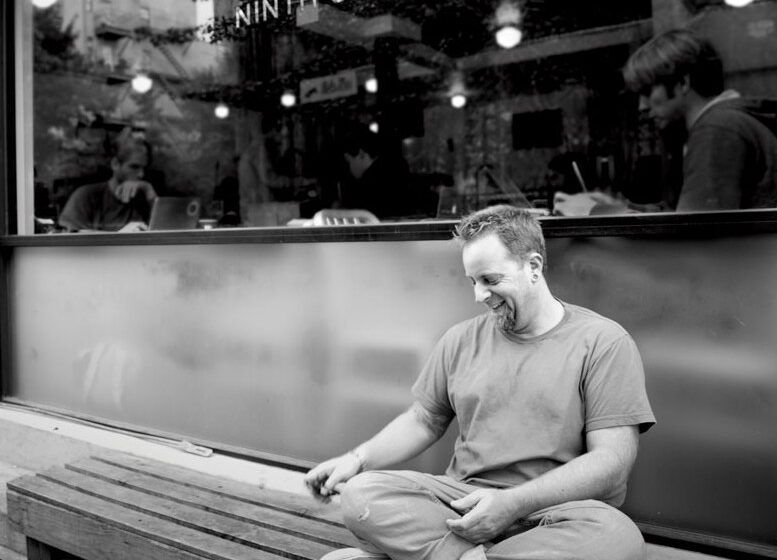[I]n an industry driven by invention and ingenuity, we don’t often examine our roots. Specialty coffee remains relatively young, and it’s easy to focus on the palpable present and exciting future of third-wave culture, rather than the era that preceded its explosive debut. While dynamic coffee craft reigns in New York City, less than two decades ago baristas primarily wore green aprons, batch-brewing set the standard, and the flat white had yet to make its regional debut.
It was into this sparse market, populated by deli coffee and national chains, that Ninth Street Espresso presented its original Alphabet City shop, an out-of-the-way storefront offering carefully prepared espresso, single-origin beans, bagels and bialys, and a chance to watch a mythic Faema E61 in action. Food and drink writers lauded the shop’s progressive approach to coffee, and coffee lovers made pilgrimages from Connecticut, Vermont, New Jersey, and Pennsylvania. But the concept of an independent café focused on coffee’s culinary mystique was new for many, and owner Ken Nye—who entered the coffee realm after years tending bar—recalls that despite positive reception, the shop’s success was slow to form. “The first couple of years were really difficult,” he says. “It was painful to get people in mass to be receptive to our approach.”

The approach Nye refers to—characterized by a dedication to purity and coffee fundamentals—has defined the Ninth Street name for thirteen years. It has drawn industry criticism, negative press, and riled coffee drinkers enough to lose their cool in Nye’s shops. His refusal to serve half-decaf, for example, his distaste for syrups, and his strict policies concerning to-go espresso have all contributed to the reputation of a no-nonsense entity driven by unwavering coffee ideals.
Nye takes the good with the bad. His staunch approach to coffee has also contributed to Ninth Street’s reputation for quality and consistency. The company, which began roasting all its own beans last summer via Brooklyn’s Pulley Collective, has slowly grown into one of the city’s most respected café brands, recognizable by its “floating cup and flag” logo. Ninth Street’s shops are characterized by comfortable, modern design that intones a laser-like focus on coffee. “There is little confusion about what we are there to do,” Nye says. “Form follows function.”
In 2005, when Ninth Street first pared down its menu by doing away with larger sizes, many shook their heads, and the café lost long-time customers. “Customers literally looked me in the face and said, ‘That’s it,’” Nye says calmly. “And having to dance your way out of an argument every ten minutes is hard. But I love that we did it.” Forward-thinking industry members applauded Nye’s chutzpah, and today, the same menu style is the norm in third-wave shops across the city, and around the world.

“Ninth Street set a lot of trends,” says Bob Peyton, who was general manger from 2005 to 2007, oversaw the company’s expansion from one shop to four, and later took his expertise to Stumptown Coffee Roasters in Portland. “It was the punk rock child and still is to this day.” Peyton chocks up Ninth Street’s success to Nye’s “infatuation with good product” and the company’s rogue business model, consistently unafraid to go against the grain.
In 2012, Ninth Street made further menu eliminations, and not without incurring the frustrations of some customers. On that menu, which stands today, drinks were simplified into four categories: coffee, iced coffee, espresso, and espresso with milk. No pour-overs, nothing steampunk, nothing sugary sweet. Words like cappuccino, macchiato, and latte are implicit. And customers still flock to Ninth Street’s espresso bars to enjoy what the shop does best: no-frills espresso and quality brewed coffee.
Despite Ninth Street’s success and Nye’s notoriously strict attitude towards coffee preparation, Nye speaks humbly about the company’s respected niche. A native New Yorker, he draws inspiration from the city’s legacy eateries, mom-and-pop dynasties built through hard work and generational torch-passing. He attributes Ninth Street’s steady growth to his own passion for coffee, and his refusal to sell off the brand (despite receiving numerous offers). Nye makes a point of visiting each location every day to ensure things are dialed in. While he occasionally roasts, and has a hand in all aspects of the business, he says quality control will always remain his biggest concern. “The day I can’t do that,” he says, “is the day I quit the business.”
—Regan Crisp is Fresh Cup’s associate editor. Photos courtesy Ninth Street Espresso.














